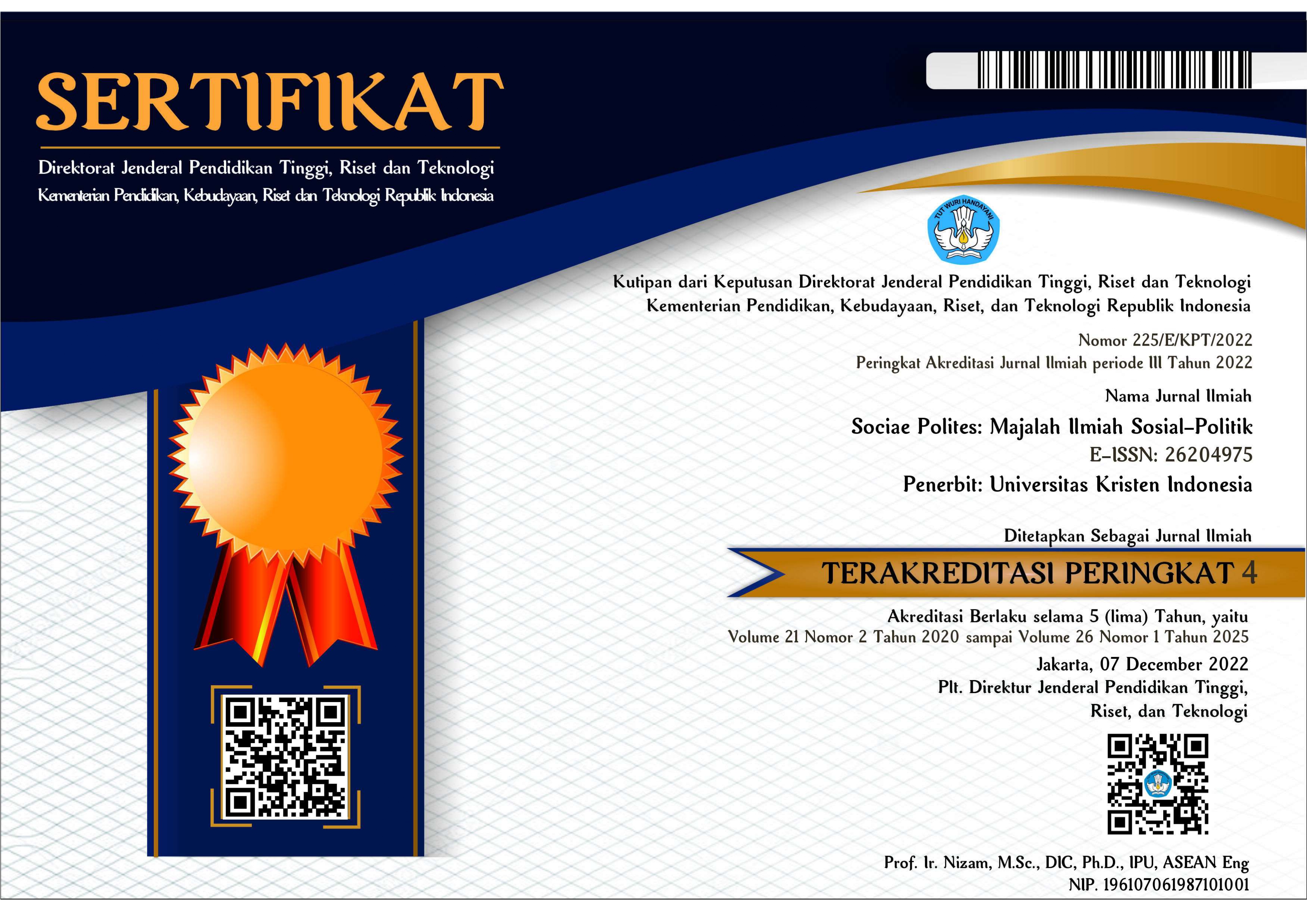PANCASILA ECONOMIC SYSTEM: A MILESTONE IN INDONESIA’S NATIONAL ECONOMIC DEVELOPMENT
DOI:
https://doi.org/10.33541/sp.v26i1.6987Abstract
This study examines the role of law in realizing a welfare state in Indonesia through the implementation of the Pancasila Economic System, grounded in the values of Pancasila and the 1945 Constitution. As mandated by the Fourth Paragraph of the Preamble and Article 33 (1) of the Constitution, national economic development must aim to achieve social justice for all Indonesians. Employing a normative legal method supported by empirical data, the research draws on primary legal sources, including legislation, final court decisions, and official documents from the Supreme Court. The analysis integrates John Rawls’ theory of justice and John Stuart Mill’s Economic Analysis of Law (EAL) to assess the fairness and effectiveness of current laws and policies.
Findings reveal a significant gap between Indonesia’s constitutional ideals and its present economic practices. The dominance of neoliberal policies and weak alignment with the Pancasila-based economy have led to legal outcomes that fall short of delivering substantive justice. Reviving the Pancasila economic model is both a constitutional duty and a strategic response to inequality, poor resource management, and sustainability issues. Strengthening the role of law as a transformative tool—rather than a mere instrument of power—is crucial to ensure that justice is accessible, inclusive, and oriented toward collective welfare. Reaffirming Pancasila as the ideological foundation of legal and economic policymaking is essential for building a just and equitable society.
Keywords: Pancasila Economic Concept, Milestones of the Indonesian Nation, Social Justice for All Indonesian People, Welfare State, Economic Democracy


 Sociae Polites: Majalah Ilmiah Sosial Politik
Sociae Polites: Majalah Ilmiah Sosial Politik